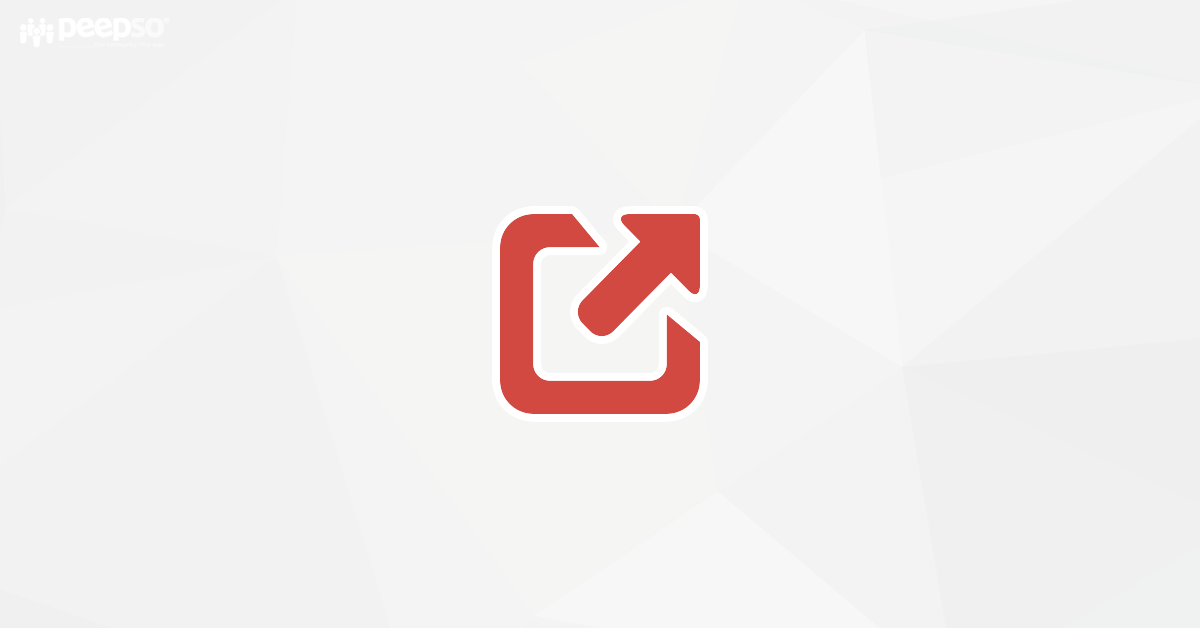Regularly publishing articles is a great way to build your online community. We’ve published quite a few articles in our Blogging Basics series so feel free to check them out.
The next topic in our series is outbound links and your authority. If you missed the last post, we discussed what you should write about.
What is an External Link?
External links are links either to or from your site from another source. Basically, anything you see on peepso.com linking to peepso.com is an internal link. The link to our previous post, for example, is an internal link.
If external sources, however, link to PeepSo.com, that is an external link. There are two types of external links: outbound and inbound. If someone links to PeepSo.com, then it’s an inbound link. The link is coming to us from an external source (which is very good for SEO but hard to get without spamming people). If we link to another website, it’s an outbound link. (Not to be confusing, but that outbound link from us to them (moz.com below) is an inbound link to them.
We will talk about internal linking in the next post, so for now, let’s focus on what we can control while writing our articles: external outbound links. You can always do a deep dive on external links with Moz.
Why Do You Need Outbound Links?
It’s tempting to copy and paste quotes and cite without linking. However, the best practices for citing online also means linking to the source. You need internal and external links to help your website (and blog) with SEO (search engine optimization) as well as authority and credibility with your readers.
Inbound links require emailing and asking other bloggers to link to your specific article. I get these about two to five times a week. Honestly? They’re annoying. I’m going to link to whomever I want to link to. But that’s the rebellious American in me, I suppose. (If you want me to link to you, publish something worth linking to). Then again, we’re supposed to talk about inbound external links next time.
Outbound links help show that your advice or stance on a topic isn’t too crazy. “See? Debbie thinks the same way we do.” We’re not the only ones putting on a unicycle race that is also a pub crawl. You get the point.
“If your website is linking to sources that reinforce your idea or theory, that explains more about your product or service, or expands on what you’ve already stated, this adds to your credibility.”
Citing Is Responsible
When you quote a person or source, then cite them. This should include a link.
“Which sources did you consult and which ones gave you the right answer? Refer and link to them, because they deserve it. You’d like others to do the same for you.”
The biggest objection to linking to your sources is the fear people will leave your site. Don’t worry about people leaving your site. Most people know how to open a link in a new tab anyway. And really, will they? Unlikely.
Rather, your reader will see that you’re a good human who cites sources. It will cause them to take you more seriously and, quite possibly, read more articles and participate in your community.
Engage Your Community
Content marketing keeps people interested and engaged on your site — which helps build your community. With PeepSo, you can host a growing and thriving community. How will you engage your community?



























Share Your Thoughts
Comments